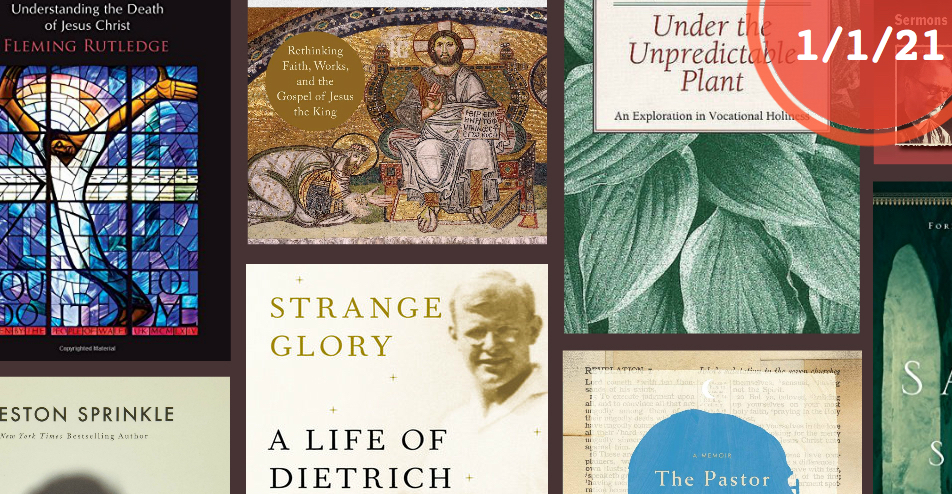Below is a small selection of some of my favorite books that I read throughout the year. I’ll include a link to each book (there are nine of them), a short explanation for why I enjoyed the book so much, as well as a select quote or two.
(Disclaimer: My inclusion of any author on a list like this shouldn’t be taken as my tacit endorsement of everything this person may have ever said or written in their life. Got it? Good…)

The Selfless Way of Christ: Downward Mobility and the Spiritual Life by Henri Nouwen
Why I enjoyed it: Nouwen’s writing is simple and accessible, and yet so deep and rich. This is a very short and readable book ideal especially for leaders who have a tendency to be driven by unrestrained ambition.
Select quote: “We will never come to know our true vocation in life unless we are willing to grapple with the radical claim the gospel places on us.”
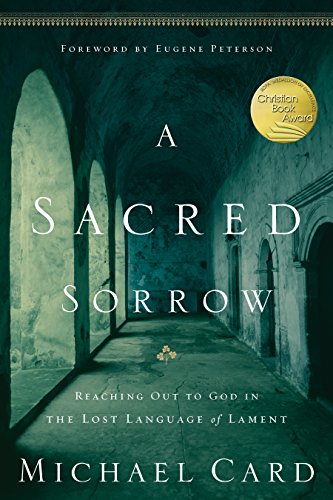
A Sacred Sorrow: Reaching Out to God in the Lost Language of Lament by Michael Card
Why I enjoyed it: Among other things, 2020 has been a year of intense sorrow and grief. I have several close friends and members of my church family who have experienced the pain of loss in various forms. Even though our final destiny is one of eternal celebration, the Christian life is not just about smiles, cheerfulness, and good feelings. Each of us will experience seasons throughout our lives in which we will bear excruciating sorrow, and it will seem as though God is totally absent. But it is only through Good Friday and Holy Saturday that we can access Easter Sunday. And that requires that we know how to lament. Michael Card’s book is an excellent introduction to the biblical language of lamentation.
Select quote: “Until we learn to lament, we have nothing to say to most of the world.”
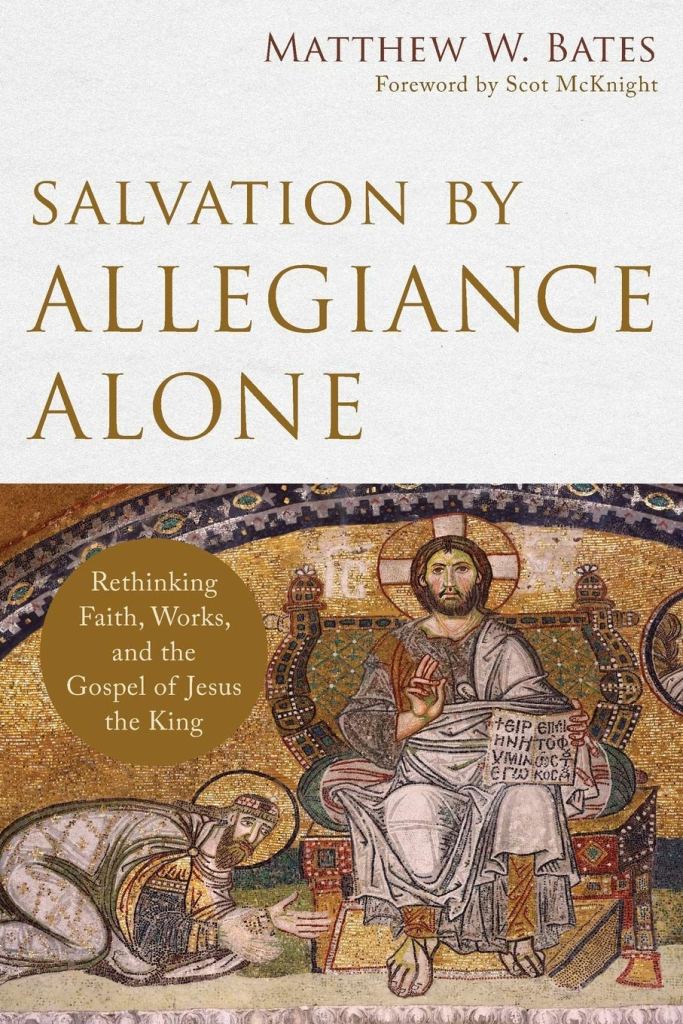
Salvation by Allegiance Alone: Rethinking Faith, Works, and the Gospel of Jesus the King by Matthew Bates
Why I enjoyed it: American evangelicalism desperately needs to recover a New Testament perspective on the matter of salvation and what it means to “believe” in Jesus Christ. New Testament scholar Matthew Bates has provided us with an important (and accessible) exploration into the meaning of the Greek word pistis (often translated “believe” in the New Testament). In short, it doesn’t mean what we think it means…
Select quote: “With regard to eternal salvation, rather than speaking of belief, trust, or faith in Jesus, we should speak instead of fidelity to Jesus as cosmic Lord or allegiance to Jesus the king. This, of course, is not to say that the best way to translate every occurrence of pistis (and related terms) is always or even usually ‘allegiance.’ Rather it is to say that allegiance is the best macro-term available to us that can describe what God requires from us for eternal salvation.”
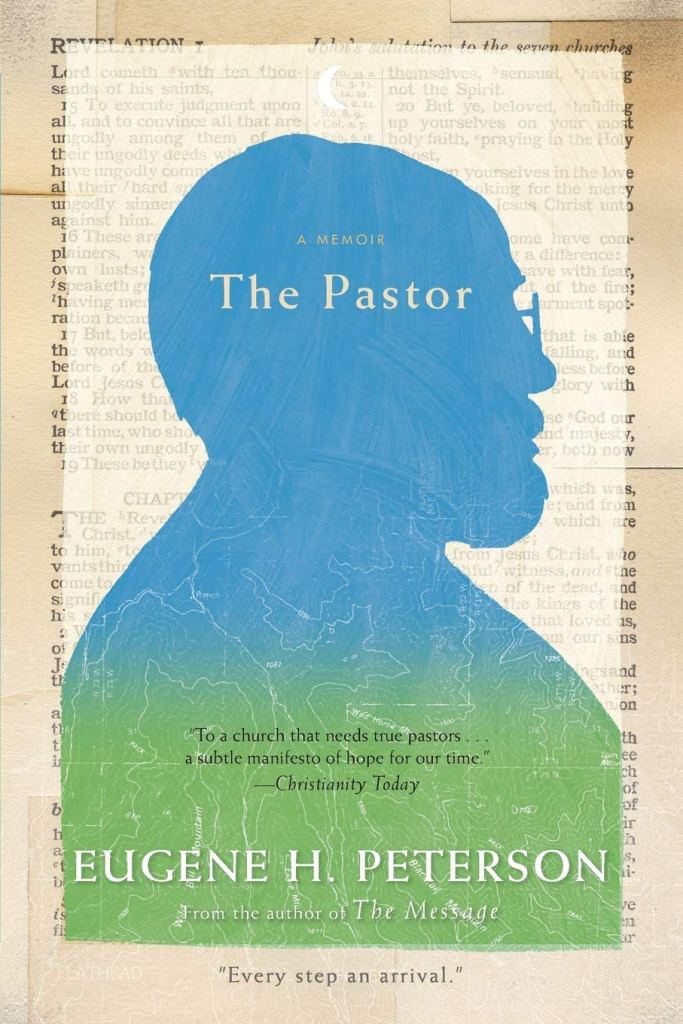
The Pastor: A Memoir by Eugene Peterson
Why I enjoyed it: Peterson looks back on his life of pastoring, telling stories and sharing the lessons he learned along the way. If you are a pastor or church leader, this is an easy and entertaining read chock-full of some amazing, thought-provoking nuggets that will challenge how you approach your vocation.
Select quote: “I don’t love the rampant consumerism that treats God as a product to be marketed. I don’t love the dehumanizing ways that turn men, women, and children into impersonal roles and causes and statistics. I don’t love the competitive spirit that treats others as rivals and even as enemies. The cultural conditions in which I am immersed require, at least for me, a kind of fierce vigilance to guard my vocation from these cultural pollutants so dangerously toxic to persons who want to follow Jesus in the way that he is Jesus.”

Strange Glory: A Life of Dietrich Bonhoeffer by Charles Marsh
Why I enjoyed it: Last year I read Discipleship by Dietrich Bonhoeffer while I was doing some research on the Sermon on the Mount. Strange Glory is a well-written, fairly comprehensive account of the life of the man himself. Bonhoeffer’s story is a fascinating example of the reality that people are not static. We are all on the journey of becoming. In Bonhoeffer’s case, he would eventually walk away from a kind of sterilized theology that has no relevance for the real world and embrace the radical claims of the Christian gospel in a way that would eventually lead to his own martyrdom.
Select quote: [Bonhoeffer] “Christians in Germany will face the terrible alternative of either willing the defeat of their nation in order that Christian civilization may survive, or willing the victory of the nation and thereby destroying our civilization,” he had finally explained in a letter to Niebuhr. “I know which of these alternatives I must choose, but I cannot make that choice in security. …I have come to the conclusion that I made a mistake in coming to America.”
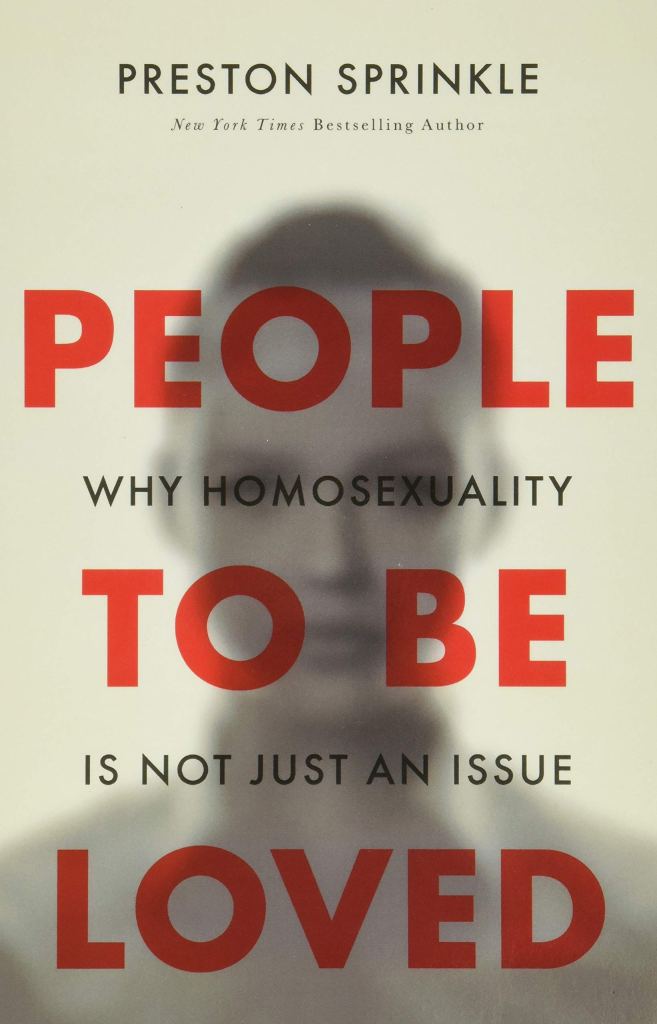
People to be Loved: Why Homosexuality Is Not Just an Issue by Preston Sprinkle
Why I enjoyed it: This is the most honest, compassionate, and truthful resource I have ever come across on this topic. New Testament scholar Preston Sprinkle does a more than skillful job wading through the various biblical texts. He gives a clear perspective on various questions that are part of this discussion, and yet he does so with amazing sensitivity and compassion. This is one you’ll need to read all the way through (don’t stop after the first chapter or two).
Select quote: “If the church is ever going to solve this issue, it needs to stop seeing it as an ‘issue.’ Homosexuality is not an issue to be solved; it’s about people who need to love and be loved.”
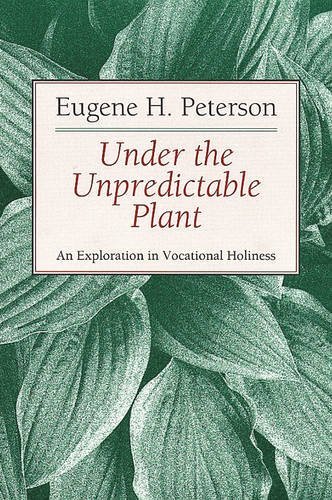
Under the Unpredictable Plant by Eugene Peterson
Why I enjoyed it: This one is especially written for pastors. Peterson relates the pastoral vocation to each of the components of the biblical story of Jonah. Deeply convicting, encouraging, and challenging.
Select quote: “Somehow we American pastors, without really noticing what was happening, got our vocations redefined in the terms of American careerism. We quit thinking of the parish as a location for pastoral spirituality and started thinking of it as an opportunity for advancement. Tarshish, not Nineveh, was the destination. The moment we did that, we started thinking wrongly, for the vocation of pastor has to do with living out the implications of the word of God in community, not sailing off into the exotic seas of religion in search of fame and fortune.”
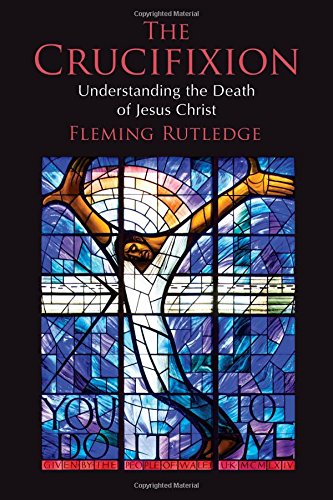
The Crucifixion: Understanding the Death of Christ by Fleming Rutledge
Why I enjoyed it: An astounding work that may not be for the casual reader (nearly 700 pages). But Fleming Rutledge does an outstanding job of helping readers understand the nature of the atonement. She brings out each of the major motifs that connect to the crucifixion of Christ, helping the reader to realize just how incredible the Cross actually is. Rather than emphasizing one “atonement theory” over others, she demonstrates how each of the major atonement theories have something indispensable to contribute to how we understand Christ’s death.
Select quote: “From beginning to end, the Holy Scriptures testify that the predicament of fallen humanity is so serious, so grave, so irremediable from within, that nothing short of divine intervention can rectify it.”

Preaching in Hitler’s Shadow: Sermons of Resistance in the Third Reich by Dean G. Stroud
Why I enjoyed it: This is a collection of sermons given by German pastors that served as prophetic critiques against the nationalistic, militaristic, and racist policies of Nazi-ism during Hitler’s reign of terror. I was greatly inspired to read these courageous sermons from pastors who risked their lives (and in some cases gave their lives) by upholding their supreme allegiance to Christ in the midst of the scandalous compromise of the “German Christian” movement in the mid-to-late 1930s.
Select quotes: [Helmit Gollwitzer] “Whoever considers himself a Christian and yet shares the outrage over this call to repentance should at least know that he has exchanged God’s standard for the standard of the current political propaganda and has replaced the altar of divine justice with the altar of his own nation’s self-justification.”
[Paul Schneider] “I would rather die for my faith than live a cowardly and cultured life with the rest of the world. For nowhere is it said that God will allow us in all circumstances here to live the little span of earthly life without going through loss of money, property, honor, life and limb, wife and child. Even more, such sorrows must come upon the Christian at times; but the Lord brings the little boat of the church through the stormy seas of human events, which must grow calm at his word.”

